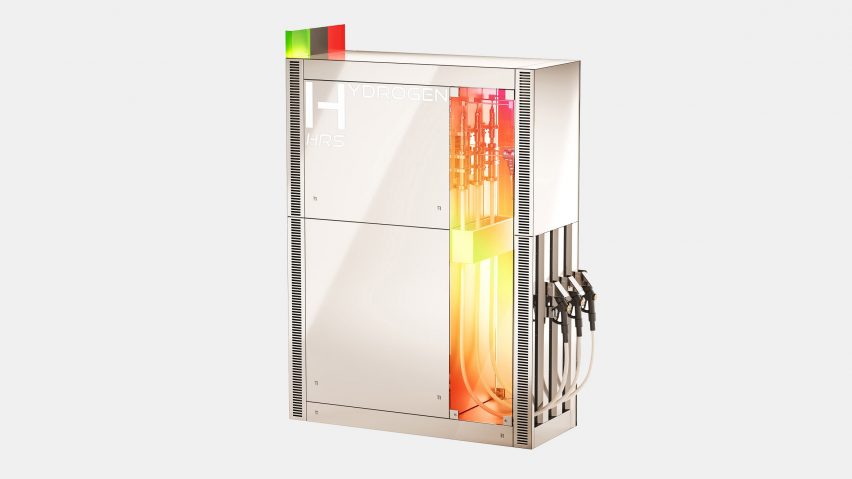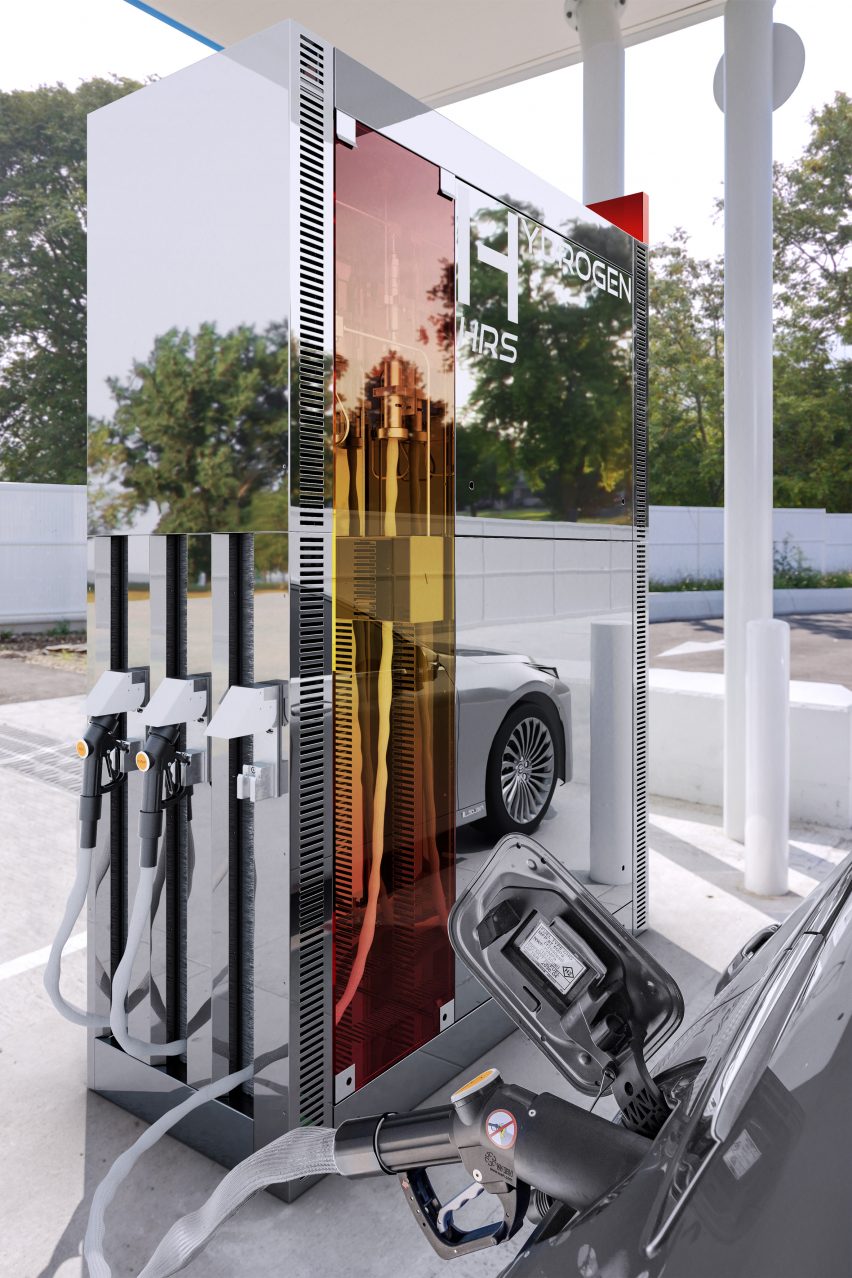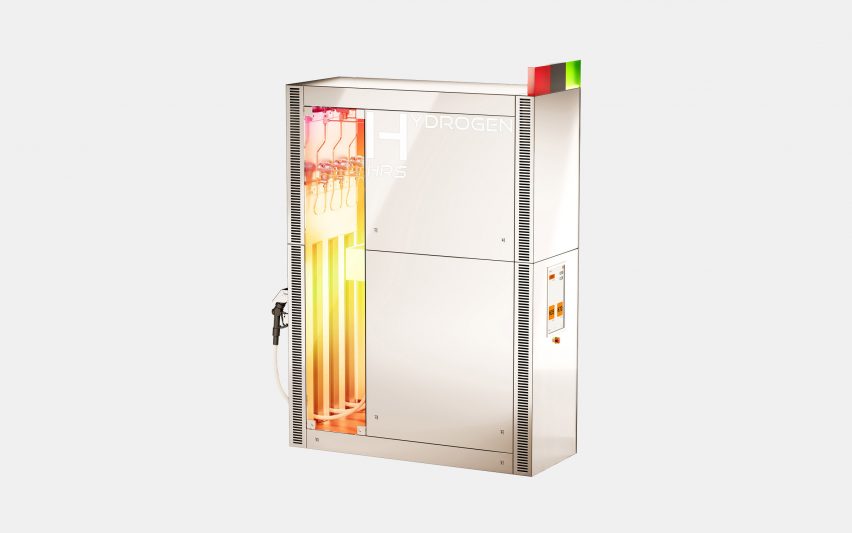
Philippe Starck designs refuelling station that highlights the "nothingness" of hydrogen
French designer Philippe Starck has created a hydrogen refuelling station featuring a mirror-polished stainless-steel casing and colour-changing dichroic glass designed to give it a futuristic feel.
Starck designed the dispenser for HRS, a leading European designer and manufacturer of hydrogen stations.
HRS by Starck is based on the company's high-capacity refuelling points, which can dispense hydrogen gas to power cars, HGVs, buses, boats, trains and construction machinery.
The prototype design is being presented at the COP28 climate summit in Dubai as part of the Green Zone – a hub dedicated to energy transition technologies, innovation and decarbonisation.

Starck explained that the design aims to be "almost invisible", in order to emphasise that the fuel it supplies takes the form of a colourless gas that offers an alternative to fossil fuels.
"Hydrogen is clean; it is nothingness, the ether," said the designer.
"It is clear that HRS By Starck hydrogen refuelling stations should be dematerialised. No particular style or design, for an object, which, like all other smart devices, has already disappeared."
The hydrogen station is contained within a polished stainless-steel box with a window that displays the interior. This glass panel features a dichroic treatment that creates a subtle colour-changing effect.
"HRS by Starck is elegant and intelligent energy, at the service of hydrogen, which is the minimum that gives the maximum, serving people and the future," Starck added.

HRS's modular and scalable refuelling stations are filled with highly compressed hydrogen gas that is stored and cooled so that it can be dispensed using the system's outlet points.
The various hydrogen stations are compatible with all types of vehicles thanks to their two available pressure settings (350 bar and 700 bar).
The products can be adapted to meet both professional and public needs, with examples already operating in several locations across Europe. The first of the HRS by Starck dispensers will be installed in 2024.
Hydrogen power is seen as an important alternative to fossil fuels as it has the potential to deliver lower-carbon, efficient and affordable energy at scale.
The fuel is already being used to power vehicles including a 19-seater prototype aeroplane and an off-road vehicle developed by Japanese carmaker Lexus.
British airline EasyJet and engineering company Rolls Royce have produced a hydrogen-powered aircraft engine, while London design studio Layer has created a system of products for retrofitting vehicles to run on green hydrogen.
Starck has worked across many disciplines including product and furniture design, architecture, and marine and aerospace engineering.
The designer recently told Dezeen in an interview that he has spent his career fighting against "macho products" targeted at men and called on the next generation to focus on creating a more "asexual" design aesthetic.
Visuals are courtesy of Philippe Starck.